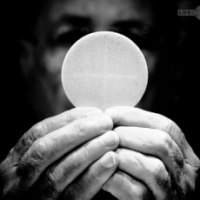The other day was the three-year anniversary of my entering the Church. And as I’ve been helping dear ones through their own conversions this year, it occurs to me that once again, I’ve left my own conversion story hanging. Here is another chapter. The first week I moved to Oxford, Mississippi, for graduate school, I …
Continue reading “I went to Mass and didn’t like it: Faltering steps in my journey to the Church”
